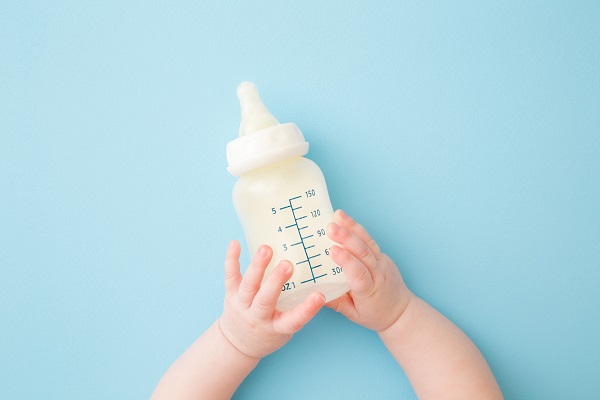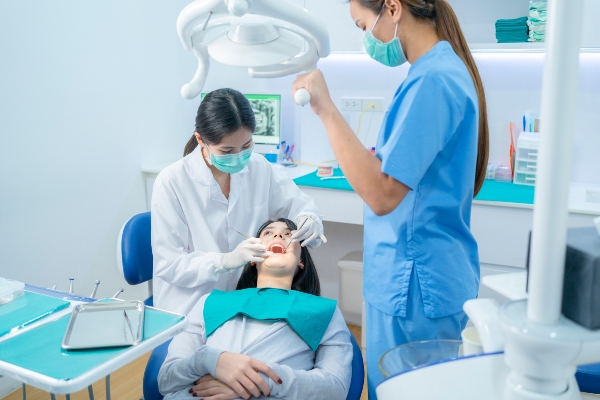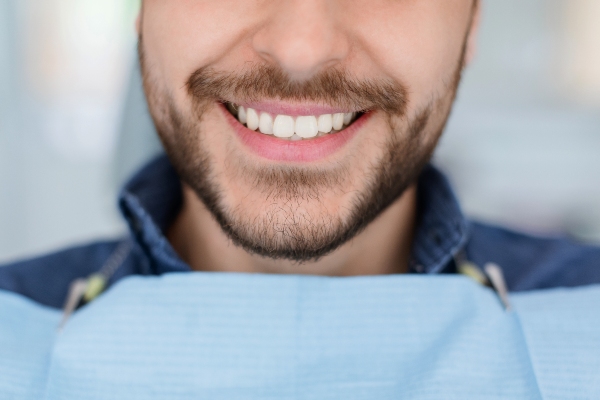How Common Is Baby Bottle Tooth Decay?

Also known as early childhood caries, baby bottle tooth decay affects baby teeth and often begins when a child drinks from a bottle. Parents expecting or caring for an infant might have heard of baby bottle tooth decay during their research on parenthood.
Infants are entirely reliant on their parents for dental hygiene, so learning about baby bottle tooth decay and how to avoid it so you can protect your child's dental health is a good idea.
Common questions about baby bottle tooth decay
Protecting your child's teeth is crucial for ensuring good dental health and a strong start in life. Here are a few things to know about tooth decay in infants.
What is baby bottle tooth decay?
Baby bottle tooth decay refers to dental caries in infants. Medically, it is referred to as early childhood caries (ECC) and most often occurs in the upper front teeth. It got the name "baby bottle tooth decay" due to its most common cause: parents putting their infant to sleep with a bottle of milk or juice.
What causes this type of tooth decay?
These early childhood caries are often caused by frequent, prolonged exposure to drinks with sugar, such as milk. This can happen when parents put their baby to bed with a bottle. Primary caregivers can also inadvertently pass cavity-causing bacteria to their children, which often occurs through sharing saliva via a spoon or pacifier.
How common is baby bottle tooth decay?
Infants are at a higher risk for tooth decay since they do not receive enough fluoride to protect their teeth. According to a 2018 report by the Centers for Disease Control, about 23 percent of children in the United States aged two to five have experienced dental caries on their primary teeth.
How can parents avoid early childhood caries?
Luckily, parents can avoid tooth decay in their children with proper oral hygiene and good habits. Parents should never fill their baby's bottle with sugary drinks like juice or soft drinks. Similarly, pacifiers should never be coated with honey or sugar. The child should consume a nutritious diet that is not too high in sugar to promote strong dental health.
Bottles should be exclusively for milk and formula. However, even milk contains sugar, so parents should always take away the bottle before naptime. The child should not be put to bed with a bottle, as it will expose their teeth to milk during sleep. Parents should teach children to drink from a cup instead of a bottle as soon as they are old enough to do so.
Can an infant's mouth be cleaned?
Yes, parents can wipe the infant's gums with a clean, damp washcloth after meals. Once baby teeth start to grow in, parents should gently brush the teeth with a rice-sized drop of toothpaste.
The arrival of baby teeth also means it is time for the child's first dentist appointment. Parents should schedule a checkup right away so the dentist can monitor the teeth and oral health of the child.
Treating baby bottle decay
Treatment is accessible and effective for infants with baby bottle tooth decay. According to the Institute of Dental and Craniofacial Research, tooth decay in toddlers is reversible, and the enamel can be rebuilt, thanks in part to fluoride. However, the first action is to speak with the child's dentist. Treatment plans will be tailored to suit the child's age and degree of decay.
As far as particular therapies go, the severity of the child's condition will dictate what options are available. The dentist may recommend fluoride treatments such as fluoride toothpaste or an in-office treatment that includes silver diamine fluoride (SDF) to remineralize the enamel and dentin. The dentist may also recommend mouth rinses. Pit-and-fissure sealants may be necessary to prevent and manage cavities in more severe cases. When it comes to preventing cavities, the dentist may suggest giving the child fluoridated water and low or non-cariogenic snacks like cheese, crisp veggies, or nut butter.
Get baby bottle tooth decay treatment for your child
It is easy to become overwhelmed when it comes to monitoring your infant's health. It is a good thing that the best method to prevent infant bottle dental decay is education and awareness. You should begin building excellent oral health care practices as soon as your kid is born and see the pediatric dentist when your child is six months old or when their first tooth erupts. Your child will benefit from a healthy, confident grin in maturity as a result of your efforts, and they will certainly appreciate you for it!
Do not delay treatment if your child is suffering from early childhood caries. Reach out to our dental office today to schedule a pediatric dentistry appointment.
Request an appointment here: https://www.hvkidsmiles.com or call Hudson Valley Pediatric Dentistry at (845) 363-4177 for an appointment in our Middletown office.
Check out what others are saying about our services on Yelp: Read our Yelp reviews.
Recent Posts
If a cavity develops and worsens, it could lead to the risk of a dental emergency due to an infection or severe discomfort. Dental sealants significantly reduce the risk of a dental emergency by helping to prevent cavities in vulnerable areas of teeth. Read on to learn how dental sealants can prevent a dental emergency…
Protecting your child's teeth from cavities is crucial, and dental sealants can play a significant role in preventive dentistry. These sealants are applied to the chewing surfaces of your child's molars and premolars, providing an extra layer of protection against cavities that often occur in the pits and fissures of teeth. By opting for dental…
According to the National Institute of Health, tooth decay is the most common chronic illness in the United States, with millions of people affected by minor to severe cavities. This common oral health issue is why dentists recommend that children get dental sealants as a preventive measure. Continue reading to learn more about how dental…
Dental sealants safeguard your child’s back teeth against tooth decay and infections. Although the process is painless, children can still experience some anxiety once they know they must endure a procedure. The following article will outline what parents can expect their child to experience during the dental sealant process to help calm them before the…


